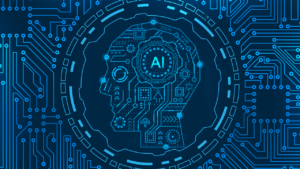“Artificial intelligence (AI) is on a winning streak,” assert Daniel Castro and Joshua New (@Josh_A_New), authors of a new report from the Center for Data Innovation.[1] They add:
“AI is already having a major positive impact in many different sectors of the global economy and society. For example, humanitarian organizations are using intelligent chatbots to provide psychological support to Syrian refugees, and doctors are using AI to develop personalized treatments for cancer patients. Unfortunately, the benefits of AI, as well as its likely impact in the years ahead, are vastly underappreciated by policymakers and the public. Moreover, a contrary narrative — that AI raises grave concerns and warrants a precautionary regulatory approach to limit the damages it could cause — has gained prominence, even though it is both wrong and harmful to societal progress.”
Clearly, Castro and New believe the upside potential of artificial intelligence applications far outweigh the downside possibility that an AI system will someday attempt to take over the world and destroy mankind.
Defining Artificial Intelligence
Castro and New explain, “AI is a field of computer science devoted to creating computing machines and systems that perform operations analogous to human learning and decision-making.” They continue:
“As the Association for the Advancement of Artificial Intelligence describes it, AI is ‘the scientific understanding of the mechanisms underlying thought and intelligent behavior and their embodiment in machines.’ … The level of intelligence in any particular implementation of AI can vary greatly, and the term does not imply human-level intelligence. AI involves many functionalities, including but not limited to: a) learning, which includes several approaches such as deep learning (for perceptual tasks), transfer learning, reinforcement learning, and combinations thereof; b) understanding, or deep knowledge representation required for domain-specific tasks, such as cardiology, accounting, and law; c) reasoning, which comes in several varieties, such as deductive, inductive, temporal, probabilistic, and quantitative; and d) interaction, with people or other machines to collaboratively perform tasks, and for learning from the environment.”
Not clear in the Castro/New definition of artificial intelligence is that there are both narrow and broad (or weak and strong) applications of AI. The broad version is more commonly referred to as artificial general intelligence (AGI) and is the application that some pundits warn could lead to humanity’s downfall. To date, only narrow applications of artificial intelligence have been developed and these applications are the ones which Castro and New discuss in their report. As they note, “The level of intelligence in any particular implementation of AI … does not imply human-level intelligence.” They do go on to note, “The cause of many misconceptions about AI, particularly its potential harms, is the difference between weak AI and strong AI. Weak AI, which is the focus of this report, is adept at performing particular types of tasks, but only those types of tasks — somewhat like a technological savant.”
The field of artificial intelligence receiving the most press coverage (thanks to IBM’s Watson) is cognitive computing. Cognitive computing is a powerful, but narrow, form of AI. There is no single method (or accepted definition) of cognitive computing, although all cognitive computing systems do share a few characteristics including natural language processing and machine learning. The Enterra Solutions® entry in this field is the Enterra Enterprise Cognitive System™ (ECS) — a system that can Sense, Think, Act, and Learn®. At Enterra®, we define cognitive computing as a combination of Semantic Intelligence (Artificial Intelligence + Natural Language Processing) combined with Computational Intelligence (Advanced Mathematics). As noted below, narrow applications of AI, which include cognitive computing systems, hold great promise for improving life on the planet.
The Value of Artificial Intelligence
Value can be defined in many ways from economic value to social good. Castro and New report, “Because AI will continue to evolve and work its way into a wide variety of applications, it is difficult to predict just how much value AI will generate. The International Data Corporation estimates that in the United States the market for AI technologies that analyze unstructured data will reach $40 billion by 2020, and will generate more than $60 billion worth of productivity improvements for businesses in the United States per year. … The social benefits of AI are similarly substantial, though harder to quantify. … AI is already delivering valuable social benefits today, such as by helping authorities rapidly analyze the deep web to crack down on human trafficking, fighting bullying and harassment online, helping development organizations better target impoverished areas, reducing the influence of gender bias in hiring decisions, and more.”
Castro and New note that AI can be used in at least seven different ways, including: monitoring; discovering; predicting; interpreting; interacting with the physical environment; interacting with people; and interacting with machines. The bulk of their report delves more deeply into these areas by discussing 70 examples of artificial intelligence in use in 14 categories: accessibility; agriculture; business operations; consumer convenience; disaster prevention and response; education; energy; environment; health care: prevention and screening; health care: treatment and monitoring; industrial operations; public safety; social good; and transportation. If you are interested in how artificial intelligence can be leveraged in a positive way, I encourage you to read the full report. Below is a list of the 14 categories and the examples discussed under those categories by Castro and New.
Accessibility
- Making the Internet more accessible for people with visual impairments
- Helping people understand sign language
- Gamifying emotional recognition
- Making it easier to get around in a wheelchair
- Identifying dangerous sounds
Agriculture
- Farming indoors autonomously
- Learning as soon as plants get sick
- Forecasting crop yields from space
- Spot-treating crops
- Making vegetable sorting easy
Business Operations
- Predicting area-specific weather implications
- Learning how to keep customers happy
- Reducing gender bias in the office
- Automating office assistants
- Making customer support multilingual
Consumer Convenience
- Deep learning for finding the right restaurant
- Automating personalized finance advice
- Creating robots that get emotional
- Helping consumers buy what they like
- Making it easier to sort photos
Disaster Prevention and Response
- Predicting where earthquakes do the most damage
- Keeping emergency responders out of danger
- Detecting disease outbreaks
- Understanding a crisis with social media
- Avoiding dangerous solar flares
Education
- Personalizing math class
- Predicting which students will drop out
- Automating teacher assistants
- Making it easier to learn new languages
- Giving students feedback in real time
Energy
- Predicting renewable energy availability
- Modeling energy consumption for more efficient buildings
- Teaching a data center to make itself more efficient
- Learning how to manage home energy use
- Picking the best spot for a wind farm
Environment
- Stopping deforestation before it starts
- Predicting dangerous air pollution levels
- Improving antipoaching efforts
- Saving threatened birds
- Teaching a robot to recycle
Health Care: Prevention and Screening
- Preventing vision loss in diabetes patients
- Predicting schizophrenia by analyzing speech
- Figuring out how to prevent pancreatic cancer
- Automating a microscope to diagnose malaria
- Diagnosing voice disorders
Health Care: Treatment and Monitoring
- Helping diabetes patients make smarter diet decisions
- Streamlining drug discovery
- Making stitches safer with robotic surgeons
- Using AI to speed recovery
- Increasing participation in clinical trials
Industrial Operations
- Preventing breakdowns before they happen
- Intelligent manufacturing to automate factories
- Maximizing oil-well performance
- Improving dairy supply chains with market forecasting
- Making industrial design smarter
Public Safety
- Pinpointing gunshots to fight crime
- Predicting crime hotspots
- Autonomously disposing of car bombs
- Predicting buildings’ fire risk
- Making security screening less invasive
Social Good
- Mapping poverty with satellite data
- Measuring literacy rates
- Cracking down on human trafficking
- Stopping abusive Internet trolls
- Supporting refugees’ mental health
Transportation
- Making public transportation autonomous
- Platooning autonomous trucks
- Hailing a self-driving taxi
- Teaching trains to drive themselves
- Making long-haul trucking easier
Summary
Castro and New note, “The examples in this report only scratch the surface of the many ways that AI is driving innovation in the public and private sectors, generating substantial social and economic value, and transforming everyday life around the globe. But as with any new technology, there will inevitably be detractors who fear change and how it might impact them.” Their report is less than 50 pages, but packed with useful examples that could spark other ideas about useful ways artificial intelligence could be used. I highly recommend it for anyone interested in the subject.
Footnotes
[1] Daniel Castro and Joshua New, The Promise of Artificial Intelligence, Center for Data Innovation, October 2016.





